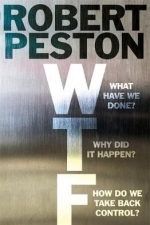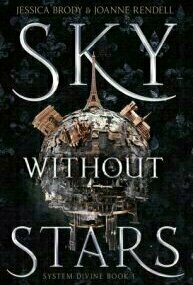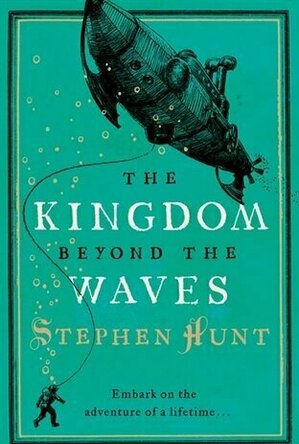Iran - Culture Smart!: The Essential Guide to Customs & Culture
Book
Iran is rarely out of the headlines, and there is likely to be a rush of interest from tourists and...
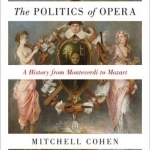
The Politics of Opera: A History from Monteverdi to Mozart
Book
A wide-ranging look at the interplay of opera and political ideas through the centuries The Politics...

The Dark Side of the Enlightenment: Wizards, Alchemists, and Spiritual Seekers in the Age of Reason
Book
In The Dark Side of the Enlightenment, John V. Fleming shows how the impulses of the European...
Sophia (Bookwyrming Thoughts) (530 KP) rated Sky Without Stars (System Divine, #1) in Books
Jan 23, 2020
<h2><strong>I totally skipped over <em>Sky Without Stars</em> at first.</strong></h2>
Hello, I'm confessing that I scrolled straight past <em>Sky Without Stars</em> until someone said the words, "<em>Les Misérables</em> in space."
Then all the grabby hands came out because <em>I love that movie</em> AND I love space??? And I sure as hell am not going to read 1000+ pages of the classic. <s>Hahaha, required reading scarred me.</s>
<h2><em><strong>Sky Without Stars</strong></em><strong> has the feel of <em>Les Misérables.</em></strong></h2>
It's been like 5+ years since I <em>watched</em> the movie so I don't remember much from the movie aside from the French revolution. I also recall having a fascination with Éponine, who I don't recall having much screentime. Despite not remembering much from the musical, <em>Sky Without Stars</em> gave off the vibes and had many elements frequently nodding to the classic.
<h3><strong>The different perspectives worked in favor.</strong></h3>
This whopping novel is divided between three different characters who will all eventually play a role in the brewing revolution on Laterre. With such a long length, having one perspective could have easily bogged down the story and be boring. But having three characters who each brought their own perspective and struggles? I enjoyed learning about each of them while reading <em>Sky Without Stars</em>.
<strong>Chatine:</strong> Chatine, based on Éponine (I think?), is by far my favorite perspective out of the three. She dresses up as a boy to go about her life in the Frets because she feels being a girl would put her at a disadvantage (and it really would). With the goal of leaving Laterre one day, she goes about her life stealing on the streets to save up for the passage.
<strong>Alouette:</strong> Y'all, I hated Cosette for some reason but I adore Alouette??? Brody and Rendell give Cosette a very nice upgrade here in <em>Sky Without Stars</em> that fit into the timeframe here! Alouette, despite not knowing much of her past and living underground, is curious and crafty as she occasionally navigates aboveground.
<strong>Marcellus:</strong> Poor Marcellus is divided between believing his grandfather as he's always had growing up or his now-deemed-traitor former governess. Despite being the least interesting perspective I read, I enjoy seeing his internal conflict and want to know what he will do in later books.
<h3><strong>There's apparently a love triangle.</strong></h3>
Younger me found the revolution too fascinating to care about trivial things such as romance. Lo and behold, I didn't even notice the love triangle until near the end, whoops. However, romance is a minor aspect of <em>Sky Without Stars,</em> and I found myself more swept away by the world.
<h2><strong>A lot of worldbuilding on Laterre.</strong></h2>
Drop yourselves into a rocket ship and let's go soaring into space because the worldbuilding is A+! Sometimes I found myself overwhelmed because I am a character development and fast-paced action person in books. However, I think it's well worth going through nearly 600 pages of mostly setup. Brody and Rendell will sweep you away to another world while bringing in elements from the original.
<h2><strong>Solid beginning to a series.</strong></h2>
<em>Sky Without Stars</em> is a solid start as a first novel, and I enjoyed seeing Brody's and Rendell's take on <em>Les Misérables</em>! This book is perfect for those who are fans of the musical or enjoy a good sci-fi with a brewing rebellion on another planet.
<a href="https://bookwyrmingthoughts.com/sky-without-stars-by-jessica-brody-and-joanne-rendell/"; target="_blank">This review was originally posted on Bookwyrming Thoughts</a>
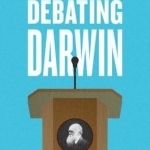
Debating Darwin
Robert J. Richards and Michael Ruse
Book
Charles Darwin is easily the most famous scientist of the modern age, and his theory of evolution is...
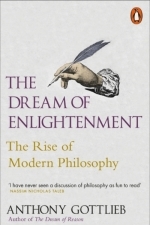
The Dream of Enlightenment: The Rise of Modern Philosophy
Book
Western philosophy is now two and a half millennia old, but much of it came in just two staccato...
Philosophy

Low Carb Diet Recipes
Food & Drink and Health & Fitness
App
Discover many Low Carb Diet recipes with this collection of 166 tuitional video lessons. Videos...
Phil Leader (619 KP) rated The Kingdom Beyond the Waves in Books
Nov 18, 2019
Meanwhile, why is someone graverobbing obsolete steamman corpses from cemetaries? And why has Furnace-breath Nick - scourge of Quatershift - been asked to break a prisoner free?
For those unfamiliar with Hunt's incredibly imaginative world - revealed in this book to likely be a far future version of our own which somehow mirrors certain aspects such as Victorian England and the French Revolution - would soon be at home in this book, particularly as half of the book involves a trip up a native-infested jungle river worthy of Conrad. Meanwhile the trail is being followed from the other end and the smoggy streets of Middlesteel in the country of Jackals by Furnace-breath Nick's not so mild mannered alter ego, Cornelius Fortune.
The way the story unfolds is very reminiscent of Saturday morning serials that used to be popular when not everyone had a television. There are a series of episodes where our heroes are put into peril and yet somehow (mostly) break free. The difference is in the mostly. Hunt is not afraid of killing off a character and that keeps the reader on the edge of their seat and turning the pages to see if that really was the end or there is a miraculous escape on the cards.
The inventiveness Hunt showed in The Court of the Air is very much still evident with a fiendish plot and fantastic ideas zinging off the page together with very clever dialog. Once again this is a book to read carefully and not to skim, it will be so much more rewarding.
All in all this is a stronger book than the first and the characters in it are terrific, heroes and villains alike. There are still Deus Ex Machina escapes here and there but they are on the whole consistent with the world of Jackals.
I would very much recommend this to anyone who likes their science fiction broad and heading to steam punk rather than space opera (although it's not really steam punk) and their adventure old-school swashbuckling. Terrific work.
Gareth von Kallenbach (980 KP) rated Mr. Peabody & Sherman (2014) in Movies
Aug 6, 2019
1950s-1960s legendary kids cartoon "The Rocky and Bullwinkle Show." Mr.
Peabody (Ty Burell), a Nobel prize winning brainiac canine, whose
intelligence is beyond that of any human being; there is nothing this
Beagle cannot do. He was able to put his brilliant mind to use and adopt
a young boy named Sherman (Max Charles) and he also invents a time
travelling machine he calls the WABAC (pronounced way-back). He uses the
WABAC as a teaching tool by travelling back in time with Sherman to
experience some of the most famous moments in history.
On Sherman's first day school, he finds that some of the history lessons
being taught in school were not accurate to how the events actually took
place. Remember, he traveled in time and witnessed it all first hand.
Sherman finds himself clashing with his classmate Penny (Ariel Winter),
who spends most of her time teasing and bullying Sherman for 'knowing too
much' and for being raised by a dog. In an attempt to bring peace among
Sherman's classmates and to also avoid the impending threat from child
services who would like nothing more than to prove that a dog does not have
the right to raise human child, Mr. Peabody invites Penny and her parents
over to their home for dinner. Sherman tries to impress Penny by breaking
Mr. Peabody's rules and introduces Penny to the WABAC. Nothing good comes
of two kids travelling in time and disrupting the space time continuum.
Enter Mr. Peabody, who uses the WABAC to try and rectify the disruptions
that were caused by Penny and Sherman's adventure through time.
This movie is not the story of "man's best friend!" It is geared more
towards the father-son relationship. A very likeable film that brings us
back to some significant moments in history, such as Leonardo DaVinci's
painting of the Mona Lisa, the Trojan War, the time when King Tut ruled
Ancient Egypt, and the French Revolution. In true Dreamwork fashion, there
was just the perfect of amount of humor for kids and adults alike to
enjoy. What sets this movie apart from others is its ability to embrace
education as an adventure and how it challenges the 'traditional' family
stereotype and that love can be found in all creatures and at any time.
4 out of 5 stars.

